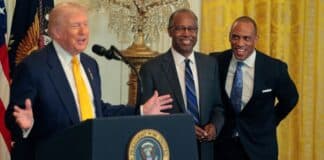Wisconsin Senate Republicans are pressing Governor Tony Evers to meet next week to keep the state on schedule for passing its annual budget before the fiscal year ends. Senate Majority Leader Devin LeMahieu said Thursday that failure to meet soon could jeopardize the timeline for finalizing budget legislation.
A key GOP priority is a tax relief plan that includes exemptions for some retirement income and a reduced tax rate for the second-lowest income bracket. Though the proposal is expected to be more modest than last year’s, Republicans say it’s essential for providing meaningful tax relief to working families.
Democrats, meanwhile, accuse Republicans of stalling progress. Senate Minority Leader Diane Hesselbein criticized the Joint Finance Committee’s removal of over 600 items from Governor Evers’ original proposal. She emphasized Democrats’ willingness to negotiate, saying, “Our doors are open,” and urging bipartisan cooperation to finalize the budget by June’s end.
Republican leaders say they’ve sent multiple proposed meeting times to the governor’s office and are still waiting for a substantive response. LeMahieu stated that the governor’s office has had the GOP’s tax relief framework since March but has not yet offered counterproposals or specific requirements for reaching a deal.
The urgency is amplified by the state’s declining tax revenues. April collections were down 6.3% year-over-year, continuing a downward trend from March. Updated revenue projections, expected later Thursday, will be pivotal in final budget negotiations.
With political tensions high and the deadline looming, Wisconsin’s leadership faces a narrow window to strike a deal that can satisfy both fiscal conservatives and the governor’s agenda.
Republican lawmakers argue that their proposed tax cuts will provide needed relief to middle-class Wisconsinites, especially retirees and working families struggling under inflation and rising costs. They’ve emphasized that now is not the time for expanded government spending but for returning surplus revenues to taxpayers. GOP leaders have insisted their plan is both responsible and fiscally sustainable, especially in light of recent revenue declines.
Democrats have remained resistant, accusing Republicans of slashing vital programs while pushing tax breaks that disproportionately benefit higher earners. Hesselbein and other Democrats have expressed frustration over what they describe as one-sided negotiations, pointing to the removal of hundreds of budget items, including funding for education, healthcare, and environmental protections.





